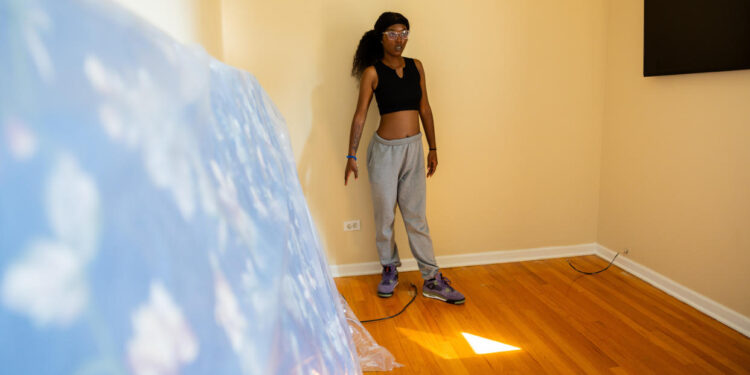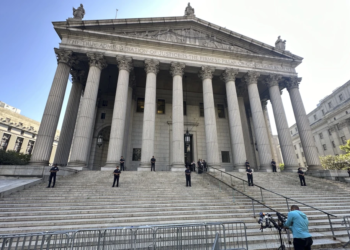CHICAGO — Bri Johnson’s ambition is hard to miss.
The 20-year-old is studying to be a medical assistant and will soon start applying for externships at several local hospitals. Her next big goal is buying a car — “a nice car that’s going to get me from point A to point B.”
But the thing that topped Johnson’s list of priorities on a fall afternoon, days before she moved into an apartment in Little Village, was getting a white desk and decorating her place, where she was set to live with a roommate. After years of temporary living situations, she was “happy and excited and ready to be on my own.”
Johnson, who until late October had been one of estimated thousands of homeless young people in Chicago, spent years in foster care and later on staying with relatives in Illinois and Mississippi. She was matter-of-fact about where that left her: “Long story short, I didn’t have nowhere to go.”
Homeless youth like Johnson tend to be less visible than other segments of the city’s homeless population, typically sheltering with friends or family in temporary living situations as opposed to the tent cities that have drawn significant attention from media and residents. Experts say this group, whose ages range from 18 to 24 and tend to be disproportionately Black, have needs distinct from their school-age counterparts and older people without homes.
That has begun to be recognized. Last month, Chicago and Cook County officials, advocates and social service providers initiated a 2½-year planning process to overhaul their approach for this age group.
Advocates say the work has become more urgent after the reelection of former President Donald Trump, who in the past has demonstrated hostile views toward the LGBTQ+ population, which makes up a large portion of homeless youth seeking refuge in Illinois and, more specifically, Chicago.
“You go from a sense of potential and possibility to a real sense of protection and mitigation,” said Andrea Durbin, CEO of Illinois Collaboration on Youth. “I think that adds a sense of urgency to make sure that we have capacity in our systems to be able to respond to that.”
Indeed, as attitudes and legal protections toward LGBTQ+ populations have deteriorated in other parts of the country, some Chicago-based organizations have reported a spike in the past two years of unaccompanied youth from outside Chicago who seek their help.
“We’re at a moment where national policy and state policy are pushing people out of their communities,” said Niya Kelly, director of state legislative policy, equity and transformation for the Chicago Coalition to end Homelessness. “They may end up in the state of Illinois or in Chicago because it feels safe, or safer, like you can build a community here.”
Nyxx Ramsey, 24, is one of them. Ramsey, originally from West Virginia, had been in Chicago for a year as of Oct. 18.










